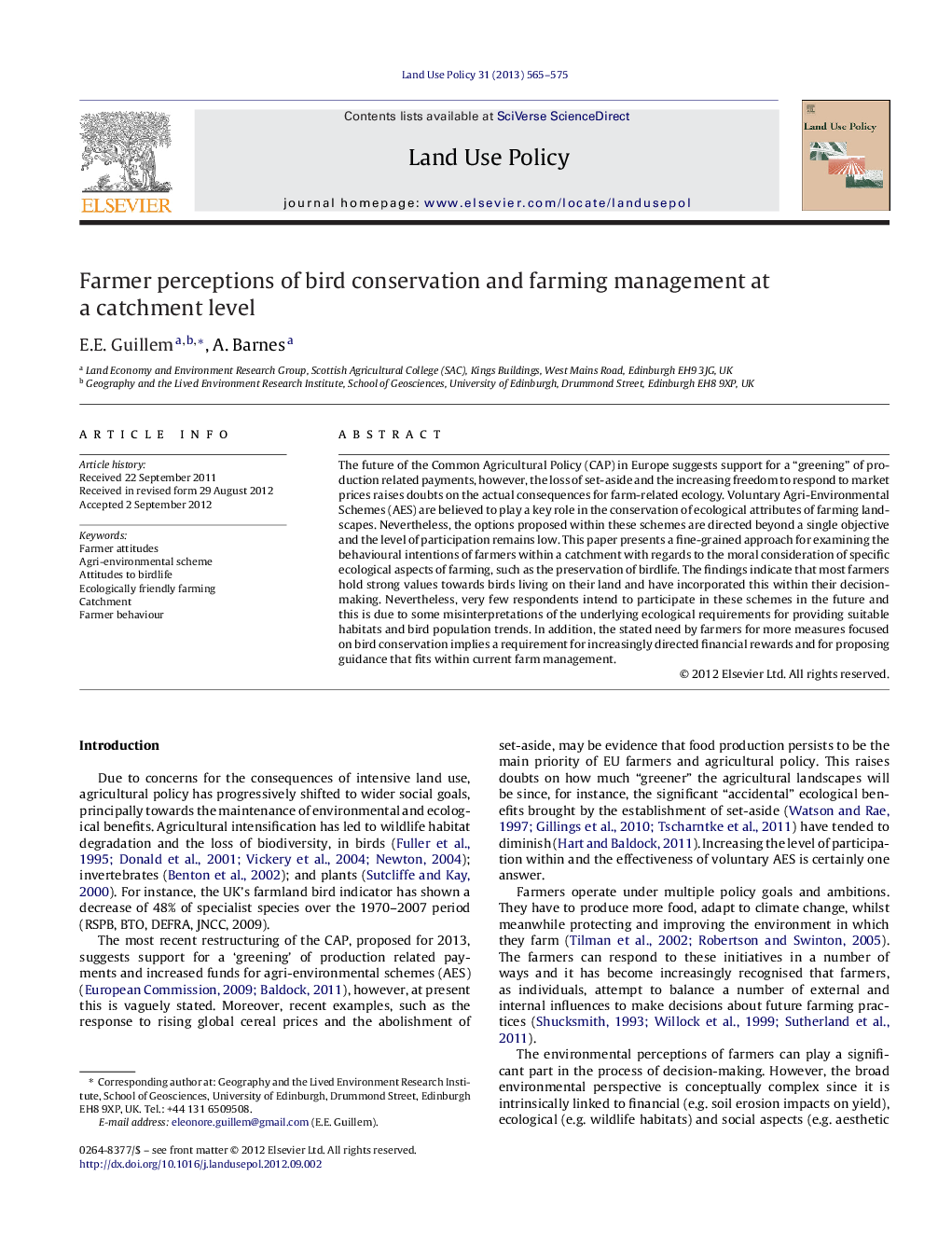| Article ID | Journal | Published Year | Pages | File Type |
|---|---|---|---|---|
| 93113 | Land Use Policy | 2013 | 11 Pages |
The future of the Common Agricultural Policy (CAP) in Europe suggests support for a “greening” of production related payments, however, the loss of set-aside and the increasing freedom to respond to market prices raises doubts on the actual consequences for farm-related ecology. Voluntary Agri-Environmental Schemes (AES) are believed to play a key role in the conservation of ecological attributes of farming landscapes. Nevertheless, the options proposed within these schemes are directed beyond a single objective and the level of participation remains low. This paper presents a fine-grained approach for examining the behavioural intentions of farmers within a catchment with regards to the moral consideration of specific ecological aspects of farming, such as the preservation of birdlife. The findings indicate that most farmers hold strong values towards birds living on their land and have incorporated this within their decision-making. Nevertheless, very few respondents intend to participate in these schemes in the future and this is due to some misinterpretations of the underlying ecological requirements for providing suitable habitats and bird population trends. In addition, the stated need by farmers for more measures focused on bird conservation implies a requirement for increasingly directed financial rewards and for proposing guidance that fits within current farm management.
► Focus on moral consideration of ecologically related issues in farming. ► Farmers attitudes towards birds are positive and play a role in farm strategy. ► Misinterpretation of birdlife reduce willingness to farm in an ecologically-friendly manner. ► Few farmers intend to apply ecologically related agri-environmental schemes. ► Necessity for higher financial rewards and guidance for integration within management plan.
